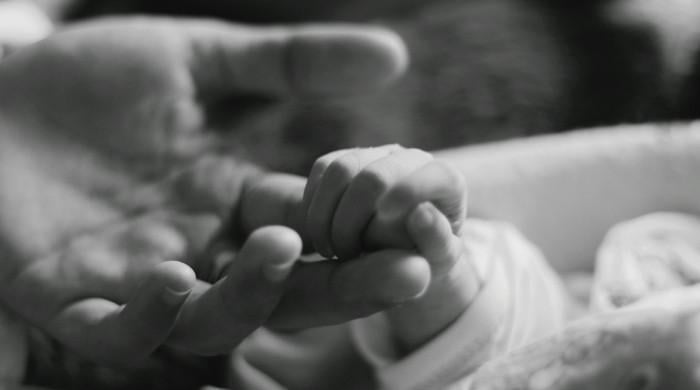Heatwave: Here's how you can prevent heat stroke
Heat stroke is avoidable by adopting simple preventive measures, but in case of delay in treatment, mortality rate can be as high as 80%
May 21, 2024

A severe heatwave is expected to hit Punjab and Sindh from today and to deal with the scorching heat authorities at both the federal and provincial levels have taken precautions to protect people from the deadly consequences such as heat-related illnesses.
Chances of an increase in heat-related issues such as heat stroke are likely to impact the population and are considered the most extreme form of heat-related illnesses with mortality rates ranging from 10% to 80%.
Heat stroke, the most severe form of heat-related illness, is defined as a body temperature higher than 40.6 degrees Celsius due to environmental heat exposure.
Studies reveal that heat stroke can be avoided by adopting simple preventive measures, but if there is a delay in treatment, the mortality rate of heat stroke can be as high as 80%.
Early diagnosis and cooling may reduce the mortality rate to 10%.
The National Disaster Management Authority and other provincial authorities have issued a heatwave advisory for the general public asking individuals to take immediate necessary measures.
The advisory stated that infants, elderly persons, athletes and outdoor workers are at high risk for heat stroke.
Symptoms of heat stroke
Generally, the symptoms of heat stroke include profuse sweating or the absence of sweating with hot red or flushed dry skin, weakness, lethargy, chills, throbbing headache, high body temperature, hallucinations, confusion, dizziness and slurred speech.
If one is having any of the symptoms, they should immediately be taken to the nearest healthcare facility.
How to prevent heat stroke?
Heat/sun stroke is a preventable condition and following are some of the common preventive measures that the advisory has shared:
- Avoid going outside during the hottest time of the day.
- Avoid strenuous physical activity if you can. If you must do strenuous activity, do it during the coolest part of the day, which is usually in the morning between 4am and 7am.
- Stay in the shade.
- Do not leave children or animals in parked vehicles.
- Drink plenty of water and avoid getting dehydrated.
- Limit time in direct sunlight during hot weather or in places with high environmental temperatures.
- Refrain from vigorous physical activities in hot and humid weather.
- Persons working under the sun should prevent dehydration and heat stroke by taking time out of the sun and drinking plenty of water/fluids.
- Patients should avoid use of caffeine and sugar containing soft drinks and/or tea, as it may exacerbate dehydration.
- Consume salty foods, use umbrella.
- Wear hats, light coloured and loose-fitting clothes during the hot/humid environmental conditions.
- Keep the body cool and hydrated by taking cool showers or baths during a heatwave.
- Use cold packs and wraps, towels, sponging, and foot baths to keep cool.
- If you feel dizzy, weak, anxious or have intense thirst and headache during a heatwave, it is best to move to a cool place as soon as possible and measure your body temperature. Drink some water or fruit juice to rehydrate.
- If you have painful muscular spasms particularly in the legs, arms or abdomen, rest immediately in a cool place and drink oral rehydration solutions (ORS) containing electrolytes.
- Medical attention is needed if heat cramps last for more than one hour.
- Victims of heat stroke must receive immediate treatment/management.











